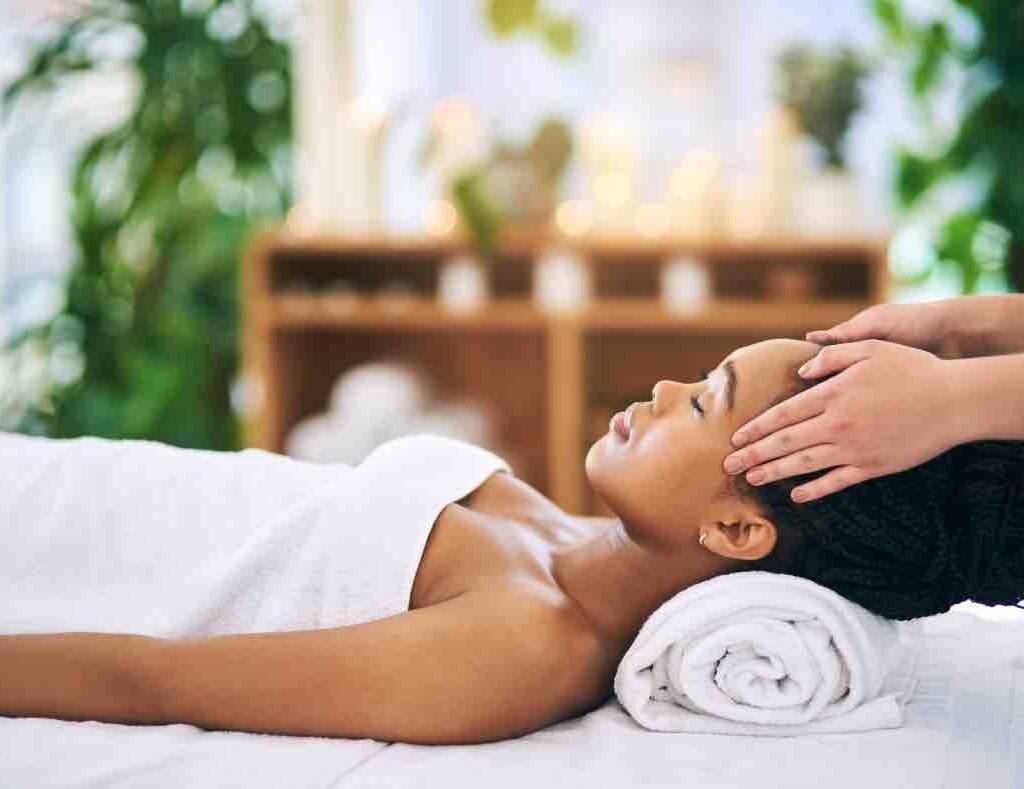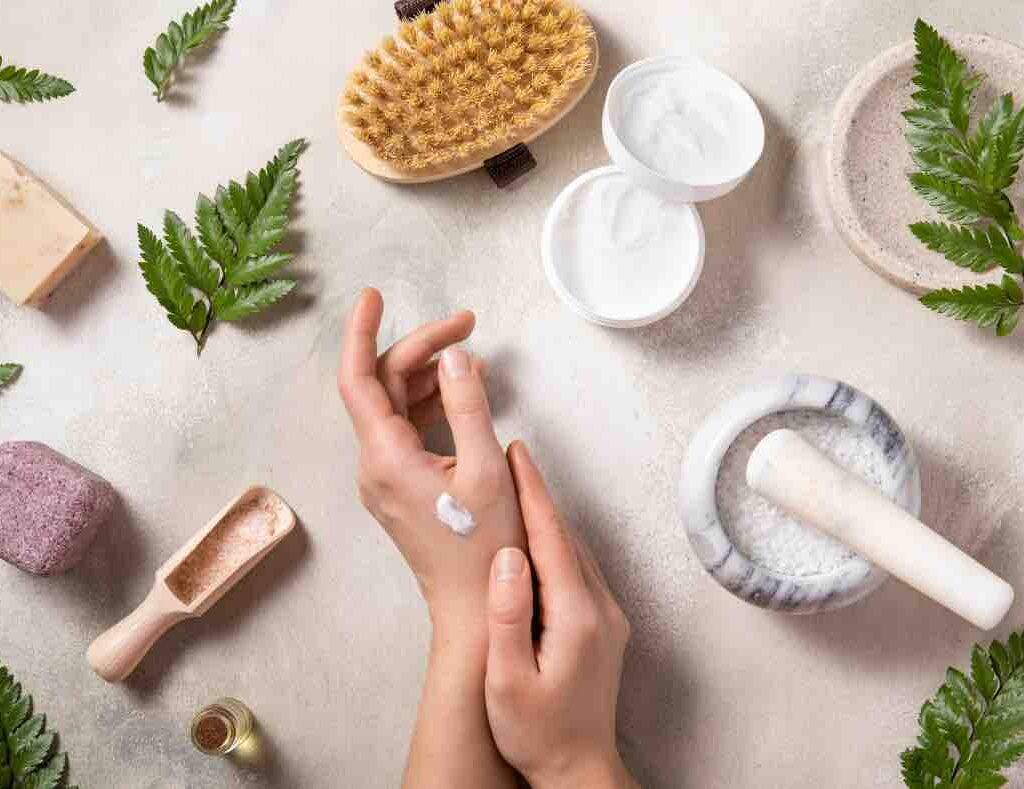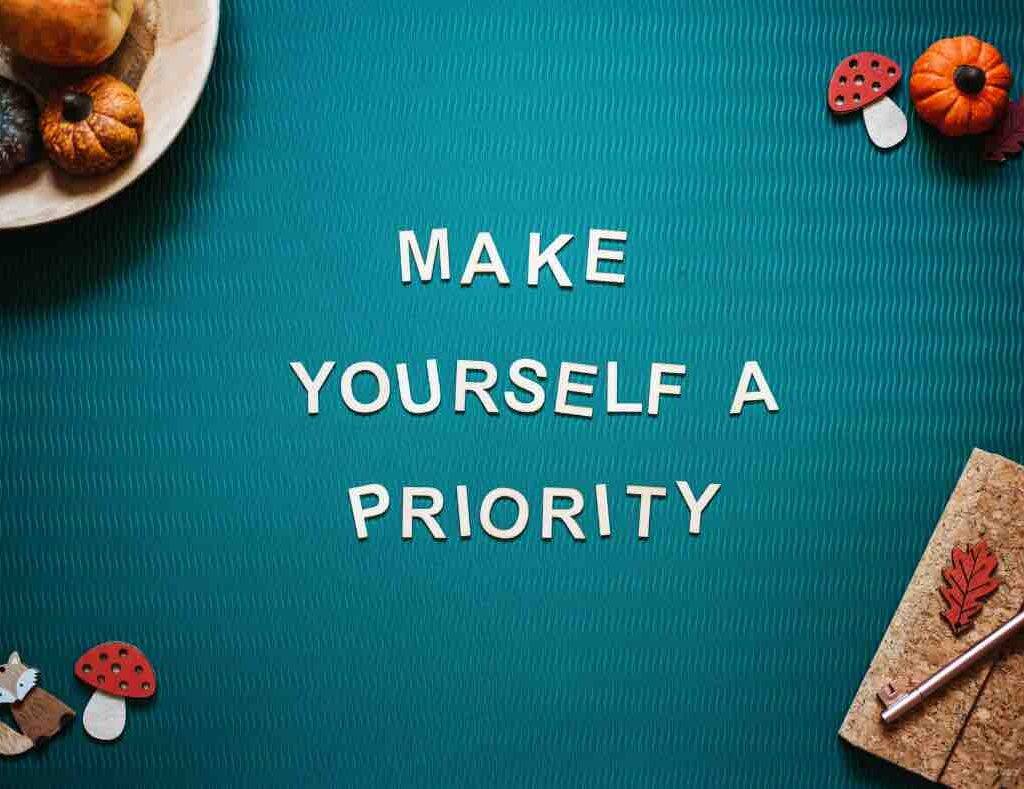Table of Contents
- Introduction
- 1. Understanding the Dimensions of Self-Care
- 2. The Science Behind Self-Care
- 3. The Myths and Misconceptions about Self-Care
- 4. Self-Care and Mental Health
- 5. The Importance of Sleep in Self-Care
- 6. The Role of Nutrition in Self-Care
- 7. Physical Activity as a Key Component of Self-Care
- 8. Mindfulness and Self-Care
- 9. Creating a Personalized Self-Care Routine
- Conclusion
Introduction
“Self-Care” As the old adage wisely reminds us, “An ounce of prevention is worth a pound of cure.” This timeless wisdom rings particularly true when it comes to the practice of self-care. At its core, self-care is about nurturing our physical, emotional, and spiritual health. According to Dr. Sarah E. Clark, a leading psychologist at Harvard University, “self-care is the active participation of enhancing one’s own health and well-being, crucial to coping with stress and living a more balanced life.”
Today’s society, in its pursuit of progress, often neglects this crucial facet of human well-being. The ‘always-on’ culture, where professional and personal lines are increasingly blurred, has made self-care more relevant than ever. As the biblical proverb exhorts, “Above all else, guard your heart, for everything you do flows from it” (Proverbs 4:23). In the context of self-care, this verse can be interpreted as a reminder to prioritize our inner well-being because it impacts all aspects of our life.
For instance, consider the case of Eleanor, a high-achieving corporate lawyer. She’s at the top of her game professionally, but her relentless work schedule has left her exhausted, anxious, and disconnected from her personal life. What Eleanor’s example illustrates is the common misconception of equating constant busyness with productivity and success. As author and motivational speaker Simon Sinek argues, “Working hard for something we do not care about is called stress; working hard for something we love is called passion.” Therefore, maintaining a balance is essential, and this is where self-care steps in.
This article will delve deeper into the definition and importance of self-care, the various dimensions it encompasses, and the scientific reasoning that underscores its relevance. It aims to dispel myths, offer practical tips, and demonstrate through real-life examples, how self-care can become an integral part of our daily routine. So, stay tuned if you wish to turn over a new leaf and become the master of your health and well-being.
1. Understanding the Dimensions of Self-Care

Indeed, self-care isn’t a one-size-fits-all proposition but a rich tapestry woven with multiple threads. Professor Daniel Goleman, a renowned psychologist, espouses the theory of emotional intelligence, likening our well-being to a chair that stands on four legs—physical, emotional, mental, and spiritual health—with social interaction acting as the cushioning that brings comfort and balance.
Physical self-care, the first leg of this chair, is embodied by the age-old adage, “A sound mind in a sound body.” Regular exercise, proper nutrition, adequate sleep—these aren’t revolutionary concepts, but they can revolutionize our health. Take Jim, a middle-aged office worker, who realized the value of physical self-care when he replaced his sedentary lifestyle with a regimen of daily exercise, healthy eating, and sufficient sleep. The transformation was nothing short of astonishing.
The second dimension is emotional self-care, predicated on acknowledging and expressing our feelings constructively. As renowned psychiatrist Dr. Judith Orloff suggests, “Emotional self-care involves nurturing and allowing ourselves to freely express each emotion as it arises.” The Bible also highlights the importance of emotional expression: “Be angry and do not sin; do not let the sun go down on your anger” (Ephesians 4:26).
Mental self-care forms the third leg. Engaging in activities that stimulate our minds, practicing mindfulness, and maintaining a positive mindset are key components. For instance, Alice, a retiree, took up painting and meditation. Her stress levels decreased dramatically, illustrating the proverb, “An idle mind is the devil’s workshop.”
Spiritual self-care, the fourth leg, emphasizes practices that nourish our souls. This could be prayer, meditation, or connecting with nature. Scripture supports this, stating, “Be still, and know that I am God” (Psalm 46:10).
Lastly, social self-care forms the cushioning. We are inherently social creatures; relationships are as necessary as the air we breathe. In the words of sociologist Brene Brown, “Connection is why we’re here; it gives purpose and meaning to our lives.”
Each dimension is a piece of the self-care puzzle necessary for a complete picture of well-being.
2. The Science Behind Self-Care

Delving into the science behind self-care, it becomes clear that it’s not just a feel-good concept. Instead, it has concrete biochemical and psychological effects that play a significant role in managing stress and maintaining overall health.
Internationally recognized stress expert, Dr. Hans Selye, coined the term ‘stress’ as we understand it today. His research suggested that effective self-care measures could act as a buffer against the negative impacts of stress, which supports the saying, “prevention is better than cure.”
When we engage in physical activities, our bodies release endorphins—neurotransmitters that create feelings of happiness and euphoria. Think of endorphins as the body’s natural painkillers. This biochemical response, often referred to as the ‘runner’s high,’ illustrates the direct link between physical self-care and a positive emotional state. An example is John, who started running to manage his depression and found his mood and outlook significantly improved.
Moreover, activities like meditation and deep-breathing exercises slow down our heart rate, reduce our blood pressure, and relax our muscles, leading to a calmer, more focused mind. The Bible echoes this in Psalm 46:10: “Be still and know that I am God.” So, while you may not be able to control everything in your life, you can control your response to it—giving credence to the adage, “When life gives you lemons, make lemonade.”
From a psychological standpoint, taking time for self-care can boost self-esteem and self-compassion, as supported by Dr. Kristin Neff’s research. When you invest time and energy into caring for yourself, it sends a powerful message to your psyche that you are valuable.
Finally, it’s essential to remember that neglecting self-care and allowing stress to take the reins can lead to numerous health issues, such as heart disease, diabetes, and mental health disorders. So, in essence, self-care isn’t merely about pampering yourself; it’s about keeping the doctor away, adding a practical layer to the classic saying, “An apple a day keeps the doctor away.”
3. The Myths and Misconceptions about Self-Care

Navigating the waters of self-care, one may encounter some myths and misconceptions. It’s essential to debunk these to truly harness the power of self-care.
One such myth is equating self-care with self-indulgence. This confusion is akin to comparing apples and oranges. The two may appear similar on the surface, but they are fundamentally different. Self-indulgence often involves excessive or compulsive behaviors, typically providing only short-term gratification, while self-care is about engaging in activities that promote long-term health and well-being. Dr. Susan Biali Haas, a wellness expert, argues that “Self-care is something that refuels us, rather than takes from us.”
Consider Jane, a hardworking single mother. She feels guilty about spending time on her yoga practice instead of continuously engaging with her kids. But when she frames it as an investment in her health that enables her to be a more present parent, she sees it’s not a selfish act but a necessary one. Proverbs 14:30 highlights this: “A heart at peace gives life to the body, but envy rots the bones.”
This leads us to the second myth—the guilt associated with self-care. Many people feel guilty taking time for themselves, equating self-care with selfishness. But remember the safety instructions on an airplane—you must put your oxygen mask on first before helping others. If you’re depleted, you can’t give your best to your loved ones. As psychologist Dr. Laura Markham points out, “Taking care of yourself is a precondition to taking care of others.”
Therefore, don’t be a sacrificial lamb on the altar of guilt. Embrace the wisdom of the Bible: “Love your neighbor as yourself” (Mark 12:31). It implies that self-love isn’t a luxury but a necessity. The cup must be full before it can overflow to others. It’s time to shake off the shackles of these myths and start walking the path of genuine self-care.
4. Self-Care and Mental Health

The correlation between self-care and mental health is undeniable. In the words of the World Health Organization (WHO), “There is no health without mental health.” Consequently, self-care is not merely a tool for improving mental health, but a vital ingredient in maintaining it.
Engaging in regular self-care activities can have profound effects on mental well-being. It can regulate our emotions, reduce anxiety, improve mood, and boost self-esteem. Renowned psychologist Dr. Guy Winch suggests that “Just as we brush our teeth to prevent tooth decay, we need to learn how to regularly care for our emotional hygiene.” In essence, self-care is the toothbrush for our mental health.
Practical examples abound. Consider the case of Emily, who was battling anxiety. She incorporated regular exercise, mindfulness meditation, and a balanced diet into her routine, and saw a significant improvement in her symptoms. Her story resonates with the ancient proverb, “A journey of a thousand miles begins with a single step.” In her journey towards better mental health, the first steps were those of self-care.
When dealing with specific mental health conditions, self-care strategies become even more crucial. They can act as complementary therapies alongside medication and professional help. For instance, people with depression may benefit from regular physical activity, which releases mood-enhancing endorphins. Those with anxiety disorders might find peace in practices like yoga or mindfulness, both shown to reduce the body’s stress responses.
Of course, one should not dismiss professional help and replace it entirely with self-care. The Bible wisely advises us in Ecclesiastes 4:9-10, “Two are better than one, because they have a good reward for their toil. For if they fall, one will lift up his fellow.” The path to mental health is not meant to be walked alone, and self-care is one companion on this journey, along with healthcare professionals, family, and friends. In essence, self-care is a significant player, but it’s part of a team.
5. The Importance of Sleep in Self-Care

As elusive as it may seem in our fast-paced world, sleep is a non-negotiable component of self-care. Renowned sleep researcher Dr. Matthew Walker aptly states, “Sleep is the single most effective thing we can do to reset our brain and body health each day.”
Sleep is to the brain what rebooting is to a computer. It recharges our body, enhances our mood, and sharpens our cognition. When we rob ourselves of sleep, we’re not just burning the midnight oil but burning ourselves out. The Bible underscores the importance of rest in Psalm 127:2: “In vain you rise early and stay up late, toiling for food to eat—for he grants sleep to those he loves.”
Take Tom, for example, a university student who regularly pulled all-nighters. His grades began to suffer, and he was perpetually tired. After adopting better sleep habits, his academic performance improved, and his energy levels rebounded. As the saying goes, “You cannot pour from an empty cup,” and in this case, sleep filled up Tom’s cup.
To improve sleep quality, establish a regular sleep schedule by going to bed and waking up at the same time each day—even on weekends. Create a restful environment that’s dark, quiet, and cool. Limit exposure to screens before bedtime, as the blue light emitted by phones and computers can interfere with your sleep. Consider a relaxing bedtime routine, such as reading a book, meditating, or taking a warm bath.
Remember, your bed should be associated with sleep (and sexual activities), not work or leisure activities. This can help condition your brain to associate your bed with sleep, making it easier to nod off.
The maxim “early to bed and early to rise makes a man healthy, wealthy, and wise” still holds water. Prioritizing quality sleep is like hitting two birds with one stone—you bolster your physical health while also promoting mental well-being. So, let’s put to rest the myth that sleep is a luxury and accept it as a necessity it is.
6. The Role of Nutrition in Self-Care

ust as a car cannot run without fuel, our bodies cannot function without proper nutrition. However, it’s not just about filling the tank—it’s about using the right fuel. The role of nutrition in self-care is paramount and extends beyond physical health to mental well-being.
A growing body of research, including studies led by renowned nutritional psychiatrist Dr. Uma Naidoo, supports the connection between diet and mental health. There’s mounting evidence to suggest that what we eat can impact our mood, stress levels, and even risk of depression. As the saying goes, “We are what we eat,” and when it comes to mental health, this couldn’t be truer.
The Bible, too, guides us toward mindful eating. In 1 Corinthians 10:31, it states: “So whether you eat or drink or whatever you do, do it all for the glory of God.” This isn’t an admonition to embark on a diet of manna and water, but an encouragement to make conscious choices about what we consume.
For example, Susan, a corporate executive, used to rely on fast food and sugary snacks to get her through the day. When she switched to a diet rich in fruits, vegetables, lean proteins, and whole grains, she noticed an improvement not only in her physical health but also her mood and energy levels. As the old proverb teaches us, “Health is wealth,” and Susan found her wealth in the form of good nutrition.
Here are some tips for healthy eating: strive for balance, variety, and moderation in your diet. Incorporate plenty of fruits, vegetables, lean proteins, and whole grains. Limit your intake of processed foods, sugar, and alcohol. Stay hydrated and listen to your body’s hunger and fullness cues.
By making mindful eating a part of our self-care regimen, we’re not just feeding our bodies—we’re nourishing our souls. So, don’t bite off more than you can chew. Start small, make one change at a time, and remember: self-care is a journey, not a destination.
7. Physical Activity as a Key Component of Self-Care

Physical activity is a cornerstone of self-care. Its benefits stretch beyond sculpted muscles and improved cardiovascular health to enhanced mental well-being. As famously stated by John J. Ratey, an associate clinical professor of psychiatry at Harvard Medical School, “Exercise is the single best thing you can do for your brain in terms of mood, memory, and learning.”
Regular exercise triggers the release of endorphins, the body’s natural mood lifters. It also aids in better sleep, boosts self-confidence, and reduces stress levels. Reflecting on the biblical reference, “Or do you not know that your body is a temple of the Holy Spirit within you, whom you have from God? You are not your own,” (1 Corinthians 6:19), it becomes clear that maintaining the temple of our body through regular exercise is not merely a physical endeavor but a spiritual obligation as well.
Take, for instance, Lisa, a busy professional who believed she didn’t have time for exercise. When she decided to incorporate short bursts of activity throughout her day, she noticed a significant change. Her stress levels reduced, her mood improved, and she slept better. This transformation embodies the adage, “The journey of a thousand miles begins with a single step.”
So, how can we incorporate exercise into our daily lives? Start by setting achievable goals. Even a 10-minute walk can make a difference. Make it fun by choosing activities you enjoy. Whether it’s dancing, biking, or practicing yoga, the best exercise is the one you’ll do consistently.
Additionally, integrate movement into your everyday routine. Take the stairs instead of the elevator, park farther away from the store, or have a dance party while doing household chores.
Remember, exercise is not about punishing your body; it’s about celebrating what your body can do. As the saying goes, “A healthy outside starts from the inside.” Prioritizing physical activity is a form of self-care that rewards you with both physical and mental health benefits. It’s the epitome of killing two birds with one stone.
8. Mindfulness and Self-Care

In the hustle and bustle of life, the practice of mindfulness—being fully present and engaged in the moment—can seem like a luxury. However, it’s a vital component of self-care. It’s about taking time to stop and smell the roses, or as Thich Nhat Hanh, a renowned mindfulness expert, puts it, “Drink your tea slowly and reverently, as if it is the axis on which the world earth revolves.”
Research has shown that mindfulness can reduce stress, improve focus, and boost emotional well-being. It can help us navigate life’s challenges with grace and resilience, which echoes the biblical verse, “Be still, and know that I am God” (Psalm 46:10).
Let’s consider Mike, a middle-aged man who struggled with high blood pressure and stress. After incorporating a daily meditation practice, he noticed a significant drop in his stress levels, and his blood pressure returned to a healthier range. His story reminds us of the adage, “A stitch in time saves nine.” By taking a small step towards mindfulness each day, he was able to prevent larger health issues down the line.
So, how can you incorporate mindfulness into your routine? Start with a simple meditation practice. Set aside a few minutes each day to sit quietly and focus on your breath. If your mind wanders, gently bring it back without judgment. As Jon Kabat-Zinn, the founder of Mindfulness-Based Stress Reduction, advises, “Meditation is the only intentional, systematic human activity which at the bottom is about not trying to improve yourself or get anywhere else, but simply to realize where you already are.”
You can also practice mindfulness during everyday activities. Pay attention to your senses while eating, take a mindful walk in nature, or simply take a few moments to focus on your breath during a busy day.
In conclusion, mindfulness is about living in the present rather than ruminating on the past or worrying about the future. It’s about finding peace in the present moment, as the Bible encourages us in Philippians 4:6: “Do not be anxious about anything…” With mindfulness, we can bring a sense of tranquility and intentionality to our self-care routine.
9. Creating a Personalized Self-Care Routine

Embarking on a journey towards self-care is akin to tailoring a suit—it needs to fit you perfectly, not someone else. There is no one-size-fits-all approach; rather, it is about assessing your personal needs and preferences and crafting a routine that serves you best.
Dr. Kristen Neff, a pioneer in self-compassion research, suggests that “self-care is about nurturing ourselves in a way that promotes growth and reduces stress.” You can’t pour from an empty cup, and self-care is about filling that cup based on your unique needs.
For example, John was a night owl who struggled to adopt an early morning workout routine. When he decided to switch his workout sessions to evenings, he found them enjoyable and sustainable. His situation reminds us of the proverb, “Different strokes for different folks.” What works for one might not work for another.
Start by assessing your personal needs. Do you need more rest? Are you looking for ways to manage stress? Could you benefit from healthier eating habits or more physical activity? Remember the Biblical advice in 1 Corinthians 6:19-20, reminding us that our bodies are temples of the Holy Spirit and we should honor God with our bodies.
Once you have a clear understanding of your needs, start building your self-care routine. This could include a balanced diet, regular exercise, adequate sleep, mindfulness, and maintaining social connections. Make sure to incorporate activities that you enjoy—self-care should not feel like a chore.
Finally, remember that consistency is key. As Aristotle famously said, “We are what we repeatedly do. Excellence, then, is not an act, but a habit.” Incorporating self-care into your daily routine can have profound impacts on your overall well-being.
In conclusion, creating a personalized self-care routine is a beautiful act of self-love and self-respect. It’s a continuous journey, not a destination, much like a tree that grows and changes with the seasons, always reaching for the sun, always rooted in the ground.
Conclusion
In conclusion, self-care is not a luxury or an act of selfishness; it’s a necessary endeavor that serves as the foundation for a healthy, fulfilling life. Just as the saying goes, “You can’t pour from an empty cup,” taking care of yourself ensures that you have the strength, resilience, and vitality to take care of others and meet life’s challenges head-on.
Research, anecdotes, and experts like Dr. Kristen Neff have all emphasized the importance of self-care and its ripple effect on various aspects of our lives—physical, emotional, mental, spiritual, and social. It’s the kindling that keeps our internal flame burning brightly, the nurturing soil that allows us to grow and flourish. As the Bible beautifully states, “Beloved, I pray that all may go well with you and that you may be in good health, as it goes well with your soul.” (3 John 1:2)
Consider Jane’s journey, a single mother who was always the last on her priority list. When she began to incorporate self-care into her daily life, she not only noticed improvements in her health and well-being but also had more energy and patience for her children. Jane’s story brings to life the old proverb, “Health is wealth.”
Self-care is not a one-size-fits-all approach, and it requires introspection, patience, and consistency to find what suits you best. Remember, Rome wasn’t built in a day, and your self-care routine doesn’t have to be either. Start small and gradually integrate more self-care practices into your life.
To paraphrase the renowned psychologist Carl Rogers, “The curious paradox is that when I accept myself just as I am, then I can change.” Accept where you are in your self-care journey, and let that acceptance be the stepping stone to better physical and mental health.
In the end, prioritizing self-care is about celebrating the gift of life and embracing our responsibility to cherish and protect it. So, dear reader, embark on this exciting journey of self-care, take the first step, and remember—the best time to start was yesterday, the next best time is now.

